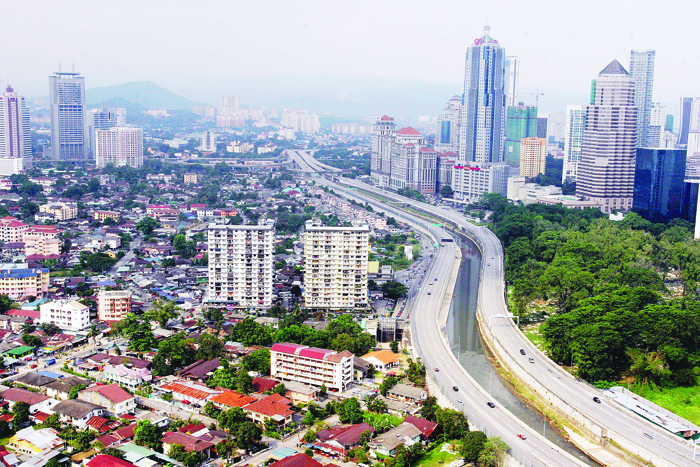KUALA LUMPUR, Oct 10 ― As property prices in Malaysia's urban centres keep spiralling up, the country's House Buyers Association (HBA) urged the government to raise the cap for affordable housing to RM400,000 in its Budget 2015 today.
With places like the national capital and other urban centres like Penang, Johor Baru and the Iskandar region in Johor attracting more workers, the HBA said the current price cap of RM170,000 for medium-cost homes was just too low to count as realistic prices under the government's definition of affordable housing.
“To reach a greater market segment, HBA recommends that the government increase the price limit for medium-cost housing to RM400,000 in order to capture a larger segment of the rakyat which comprises the low and middle-income segment,” HBA honorary secretary-general Chang Kim Loong told Malay Mail Online this week.
He noted that the government budget last year gave incentives of RM30,000 for each medium-cost and low-cost house built by developers, with the price of low-cost houses capped at RM45,000.
“Additional incentives that can be given to developers to build affordable housing are [to] fast-track approval, lower conversion premiums and fast-track approval for unsold Bumi quota units,” said Chang.
He noted that property prices in the Klang Valley have been rising annually between 12 and 15 per cent for the past five to eight years, which he said was unaffordable for young people.
“An ideal range would be between, say 6 per cent to 8 per cent, which is higher than inflation but can allow annual increase in salaries and wages to catch up,” he said.
For Budget 2015, HBA also called for the 7 per cent Bumiputera discount to be limited to private residential properties costing RM500,000 and below, as well as to limit the discount to a maximum of two properties for a single buyer.
“This price cap can be further fine-tuned from state to state and urban and rural areas as it is widely acknowledged that properties in the Klang Valley, Penang, and Johor are much higher,” Chang said.
“The type of property should exclude luxury homes such as bungalow homes, semi-detached homes and penthouse condominiums or apartments. This would mean that only link-homes and condominiums or apartments, which cater to the masses and less affluent buyers will be eligible for the Bumiputera discount and ensure that the Bumiputera discount reaches the right target market,” he added.
He also said commercial properties should be excluded from Bumiputera discounts, noting that other government agencies like the Council of Trust for Indigenous People (MARA) and the Malaysian Investment Development Authority (MIDA) were better equipped to assist Bumiputera entrepreneurs.
HBA further urged Putrajaya to double the floor price for properties in the Klang Valley and its growing satellite towns of Kajang and Semenyih that foreigners can now buy from RM1 million to RM2 million.
The group also asked for the same to be imposed on properties in the land-strapped northern state of Penang as well as to cities to the country's south, namely Johor Baru and the Iskandar region near Singapore, the latter which is drawing expatriates looking for cheaper alternatives to homes in the island republic.
“Foreigners must be prevented from buying up property meant for the middle-income rakyat. This is especially true for development corridors such as Iskandar Development which has seen foreign purchasers arriving in droves and sweeping up properties with their superior exchange rate,” said Chang.
HBA’s wishlist for Budget 2015 also includes increasing the stamp duty for the third and subsequent properties bought, to help curb property speculation.
Chang said the stamp duty for a single buyer on his third property should be set at a flat rate of 5 per cent of the property value, 7.5 per cent for the fourth property and 10 per cent for the fifth and subsequent property.
“HBA’s proposal will not penalise the majority of the rakyat who can only afford to buy two properties,” he said.



















